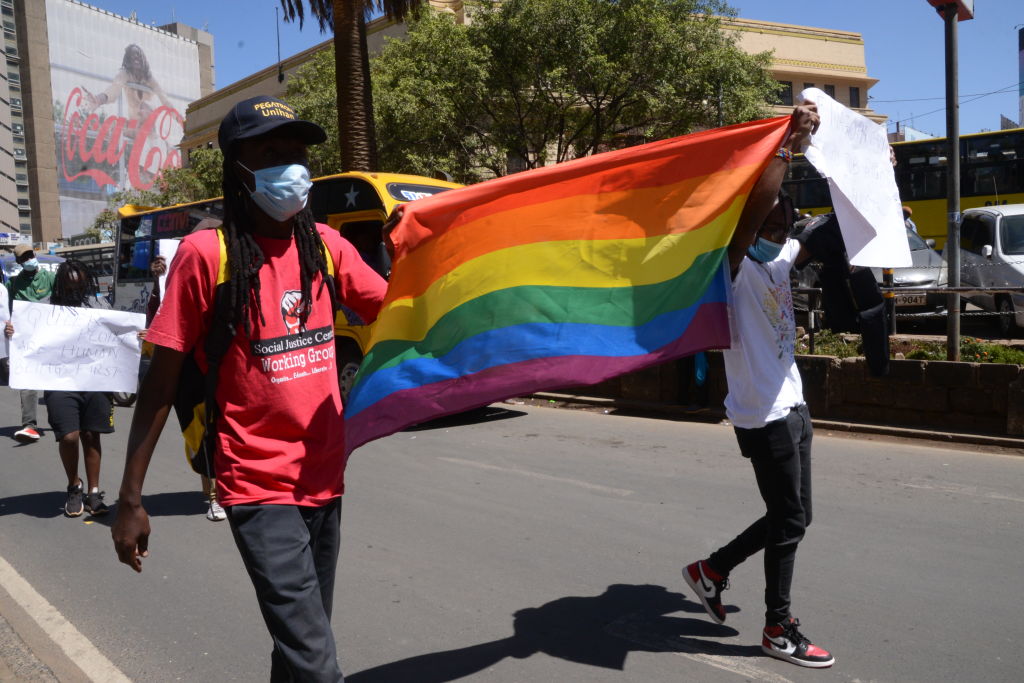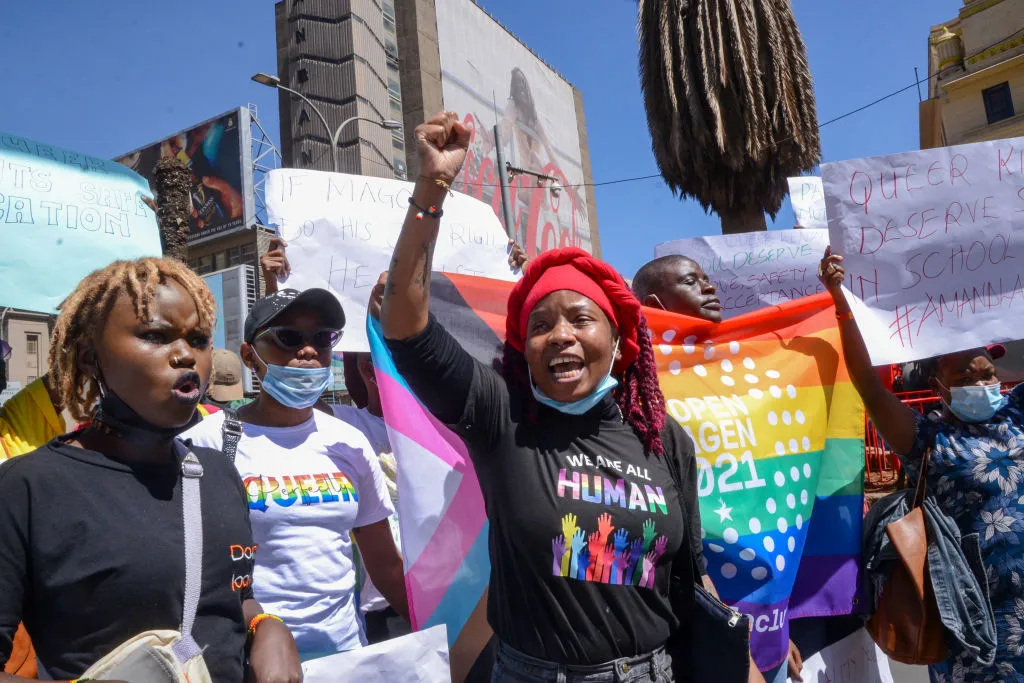Kenya’s Supreme Court rules in favour of LGBTQ+ rights group in ‘triumph of justice’

Demonstrators are seen marching with an LGBTQ flag during a protest in Nairobi. (John Ochieng/Getty)
Kenya’s Supreme Court has ruled in favour of an LGBTQ+ rights group that has been fighting for official status for a decade.
The National Gay and Lesbian Human Rights Commission (NGLHRC) launched its case in 2013 after its application to be registered as a non-governmental organisation (NGO) was denied.
The NGO Coordination Board had refused to register the NGLHRC because its name contained the words “gay” and “lesbian”. Homosexuality is criminalised in Kenya under laws imposed under British colonialism.
In 2015, the High Court ruled the refusal unconstitutional. The case then went to the Court of Appeal, which issued the same ruling in 2019.
The Supreme Court has now upheld this, ruling on Friday (24 February) it would be “unconstitutional to limit the right to associate, through denial of registration of an association, purely on the basis of the sexual orientation of the applicants”.

The ruling stated: “Given that the right to freedom of association is a human right, vital to the functioning of any democratic society as well as an essential prerequisite enjoyment of other fundamental rights and freedoms, we hold that this right is inherent in everyone irrespective of whether the views they are seeking to promote are popular or not”.
The Supreme Court is Kenya’s highest court, meaning the decision is final.
‘A triumph’ for Kenya’s LGBTQ+ community
The victory was celebrated by the NGLHRC’s current executive director Njeri Gateru.
“‘The Supreme Court’s decision to uphold the lower courts’ rulings is a triumph for justice and human rights,” Gateru said.
“At a time where the Kenyan LGBTIQ+ community is decrying the increased targeting and violence; this decision affirms the spirit and intention of the Constitution to protect all Kenyans and guarantee their rights.”
Téa Braun, chief executive of the Human Dignity Trust, also welcomed the Supreme Court’s ruling. He praised the “tenacity” of the group and its former director Eric Gitari, who filed the original challenge.

“Today the tenacity of Eric Gitari, NGLHRC and all LGBT Kenyans wishing to exercise their constitutionally protected right to freely meet and organise has been rewarded with this unequivocal ruling from the Supreme Court,” Braun said.
“Throughout this process, three courts have rightly confirmed that organisations that seek to safeguard respect for human rights should be allowed to do so with the full protection of the law, and this includes organisations working in support of LGBT people even where draconian laws criminalising same-sex intimacy still exist.
“The Human Dignity Trust wholeheartedly applauds their judgments.”
LGBTQ+ people continue to face significant legal challenges in Kenya – gay sex is a criminal offence, with those convicted facing between five and 14 years in prison.
While sex between women is not explicitly criminalised, lesbians, bisexuals and trans people can face discrimination, including “corrective rape”.
Kenya does not recognise any kind of same-sex relationships and there are no protections for LGBTQ+ people on the basis of sexual orientation or gender identity.
How did this story make you feel?

